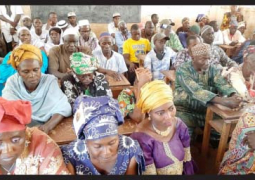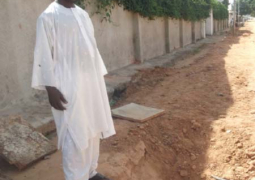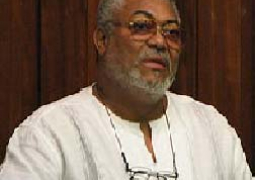Justice Emmanuel Nkea of the Special Criminal Court in Banjul yesterday overruled the no-case-to-answer submission filed by Amadou Sanneh, national treasurer of opposition United Democratic Party (UDP) and called on him to defend himself against the allegations.
The accused person through his counsel had filed a no-case-to-answer submission, after the closure of the prosecution’s case.
Amadou Sanneh was arraigned alongside Malang Fatty and Sambou Fatty and charged with conspiracy to commit an act with seditious intention, sedition, possession of seditious publication and false swearing.
“It is my view that, whether taken separately or together, exhibit “A” and exhibit “E” constitute strong evidence upon which this court may properly convict,” said Justice Nkea in his ruling.
“The no-case submission, in my view is unmeritorious, and I shall accordingly overrule same, and I shall now call on the 3rd accused to open his defence,” he declared.
Justice Nkea further stated that at issue in this ruling was whether the 3rd accused should be exempted from giving evidence and acquitted and discharged at this stage of the trial.
He said this has been the application moved orally by R.Y. Mendy counsel for the 3rd accused, adding that such an application could only succeed in the circumstances where the prosecution had failed to establish a prima facie case against the 3rd accused.
The burden rests upon the person seeking such a remedy to show that, on the facts of the case, there was no presumptive evidence that would require the 3rd accused to discharge the persuasive burden of proof on him, he added.
“Having carefully listened to the submission of both counsel, and having thoroughly examined the evidence adduced by the prosecution, thus far, and upon reading the legal authorities cited by both sides, it seems that there are two issues for determination in this application, to wit, whether there is sufficient evidence from the prosecution to require the 3rd accused to call evidence and, secondly, whether, the charges are defective, and if so, whether such defect is fatal to the case,” Justice Nkea stated.
The judge pointed out that he would first deal with the second issue; the allegation that the charges are defective.
“It is a basic rule in drafting charges, and I agree in this regard with defence counsel, that the offence must be properly described and adequately particularized. Where the charge is a statutory one, the particulars should correspond with the provision itself, and the defence counsel must check to ensure that the correct section of the Act or statutory instrument has been cited, and that the particulars correspond with the provision itself. The defence counsel may then take exception to the charge if these requirements are not satisfied,” the judge said.
Upon thorough examination of the bill of indictment before the court, he continued, he confirmed that count one thereof, was not sufficiently particularized.
“It failed to disclose with sufficient particulars the particular Act or omission complained of. To this extent, I agree with learned defence counsel that the charge is defective and, even as I agree, I do not buy the view that the defect was a substantial or material one,” he adduced.
At least the 3rd accused knows under what section of the law he has been charged, only that the reason for the charge has not been fully particularized, the judge went on.
“On this issue, it was pointed out in Siphambili 1995 (2) ZLR 337 (S) that if the indictment is deficient in particularity, that deficiency would not necessarily be fatal, the test was whether it would prejudice the accused, and any embarrassment which might have resulted from the inaccuracy in the charge should have been raised before plea,” he stated.
Either as a request for further and better particulars, or as an exception if the defence does not object before plea, to the lack of particularity in the charge which discloses an offence, they could not rely on the defectiveness of the charge at a latter stage in the trial, said the judge.
“Not having seen how these defects have prejudiced the 3rd accused person, I hold that this ground of the application lacks merit. I overrule same,” he said.
“Turning now to the 1st issue formulated above, which I also consider as the crucial issue for determination in this application. It is important to state, if only for the purpose of emphasis, that an evidentiary burden on the prosecution in criminal matters can be discharged by reliance on direct, circumstantial, or admission/confession evidence,” the judge stated.
He added that the current legal position on the issue was directly linked to the case R V Galbraith (1981) 1 WLR 1039) adopted and replied by this court in cases too numerous to mention, and on the above authority, it was now trite that, where a court comes to the conclusion that the prosecution evidence taken at its highest, was such that it could not get a conviction upon it, the no-case-to-answer submission should be upheld.
Where, however, there is evidence of such nature that a court could properly come to the conclusion that the accused committed the offence, then the judge should allow the matter to be tried, he said.
“I now turn to the remarkable features of the case under consideration. In broad terms, the 3rd accused agreed in exhibit “E” that at the request of the 2nd accused, he prepared and assisted the 1st accused person with an attestation which stated that the 1st accused, Malang Fatty, is a strong UDP militant who had been arrested and detained before and is now afraid of his own security,” stated Justice Nkea.
He would later state in exhibit “E” that he was misled into issuing the attestation, as all the facts contained therein are false, he added.
He said these pieces of evidence tend to establish, though inconclusively, the fact that the 3rd accused was the marker of the attestation he referred to in his statement in exhibit “E” in short.
“The essential issue now is not whether the 3rd accused did the act, but whether he knew or believed at the time, to be doing the wrong thing,” he said.
“Importantly exhibit “E” was admitted without any objection from the 3rd accused. The 3rd accused is, therefore, by his conduct admitted the content of exhibit “E” as his statement, and the law is that whatever evidence is admitted need no further proof,” said the Judge.
Having been so admitted in evidence, exhibit “E” now forms part of the prosecution case, to which the court must attach probative value and at this stage of the trial the judge was required to take into account all inferences, most favourable to the prosecution which may reasonably be drawn from the primary facts, he continued.
Now, he went on, the unresolved issue, which has turned out to be the lone issue for the determination, was whether the defence of a mistaken belief raised by the 3rd accused in exhibit “E”, was a genuine one, or whether it was raised as an afterthought?
So, whether the 3rd accused prepared the attestation, in mistaken belief was a matter that needs to be satisfactorily explained to the court, he said.
“As such, Exhibit “E” per se, raises strong imputation on the culpability of the 3rd accused which requires convincing explanation to clear his name in the circumstances. It seems to me that the prosecution has established required presumptive evidence,” he added.
“It is my view that, whether taken separately or together, Exhibit “A” and exhibit “E” constitute strong evidence upon which this court may properly convict,” he added.
“In my opinion, therefore, it will not be unsafe to leave the case to go to trial, to confirm the guilt or innocence of the 3rd accused,” he said.
After the ruling, the defence counsel, R.Y. Mendy, informed the court that the 3rd accused has opted not to give evidence in his defence in exercise of his constitutional right, but the defence would address the court in writing.
The case was at that juncture adjourned to 12 December 2013, for address.




